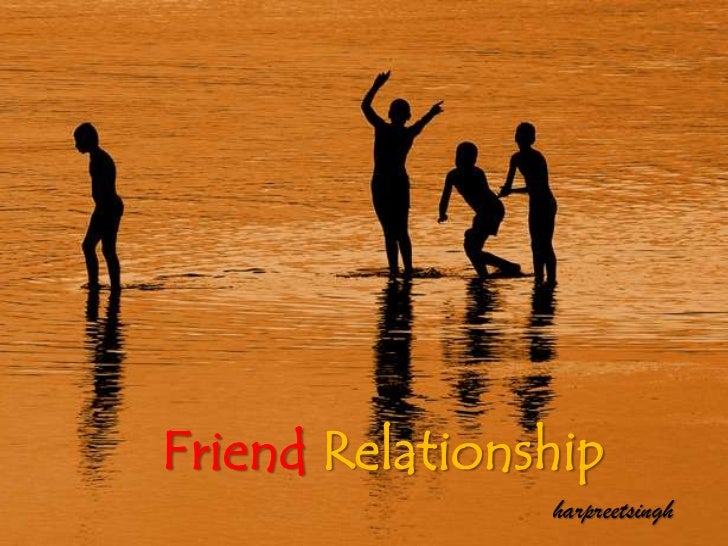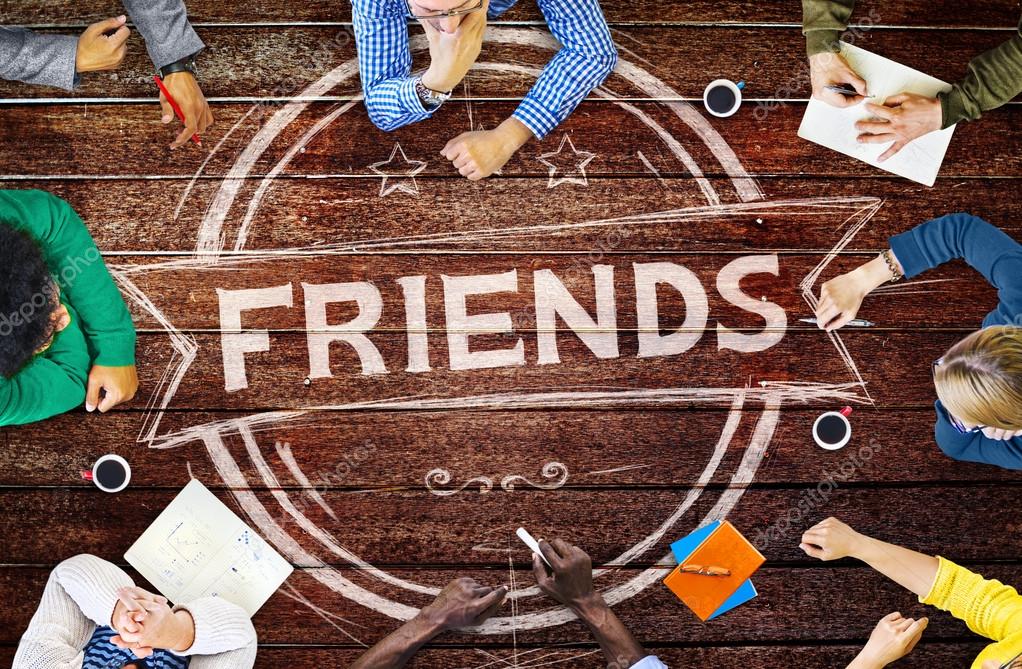When we hear the word “relationship,” our minds often go straight to romantic connections or family ties. However, relationships come in many forms, and friendship is one of the most profound, yet often overlooked, types. Is friendship a relationship in the traditional sense, or does it hold a category all its own?

What is the Definition of a Relationship?
At its core, a relationship is a connection between two or more people that is based on shared experiences, emotions, and mutual respect. Relationships take many forms: romantic partners, family members, coworkers, and, of course, friends. Each relationship varies in depth and intensity, but they all share key characteristics: emotional bonds, communication, and mutual support.
Experts in psychology define relationships as interactions between individuals that involve trust, dependency, loyalty, and shared experiences. These elements build the framework of any healthy relationship, whether platonic or romantic. Friendship fits into this framework, making it a clear and important type of relationship.
Are Friendships Considered Relationships?
The short answer is yes. Friendships are absolutely relationships. In fact, they are one of the most essential types of relationships a person can have. Unlike family ties, which are often formed by blood or obligation, friendships are based on choice. You choose your friends, and they choose you, which can sometimes make friendships feel more intentional and rewarding than other relationships.
Research shows that friendship is a key source of emotional and psychological well-being. According to a study by the Mayo Clinic, people with strong friendships tend to live longer, healthier, and happier lives. The trust, loyalty, and support provided by friends play an essential role in our ability to manage stress and lead fulfilling lives. In this way, friendships operate on the same principles as any other significant relationship.
When we consider friendship as a type of relationship, it’s crucial to understand the core qualities that make friendships both unique and meaningful. Although friendships differ from romantic or familial relationships, they share fundamental characteristics such as trust, loyalty, and emotional support. These traits make friendships a crucial part of our social and emotional well-being.
Emotional Support and Trust
One of the most important aspects of any relationship, including friendship, is emotional support. Friends are often the people we turn to in times of need, whether it’s for advice, comfort, or simply to share our joys and challenges. This emotional support helps to strengthen the bond, making the friendship deeper and more meaningful over time.
Trust is another critical element. Just like in romantic or family relationships, trust forms the foundation of a strong friendship. Without trust, friendships cannot survive. Trust in friendships means that you can confide in each other, rely on one another, and feel secure knowing that your friend has your best interests at heart.
- Fact: According to a 2018 study published in the journal Personal Relationships, trust in friendships is linked to greater life satisfaction and psychological well-being.
- Example: Think about your closest friend. You likely trust this person to keep your secrets, offer honest advice, and stand by you in difficult times. Without trust, these elements of friendship would weaken, and the relationship could become superficial.
Reciprocity and Loyalty
Reciprocity is another essential characteristic of friendship as a relationship. In healthy friendships, there is a natural balance of give and take. This reciprocity does not mean that everything must be equal at all times, but it does mean that both friends feel valued and supported. Friendships thrive when both parties are invested in each other’s well-being.
Loyalty plays a similar role. Being loyal means standing by your friend through both good and bad times. It’s about being dependable, keeping promises, and maintaining the connection even when life gets tough. Loyalty in friendships fosters trust and reinforces the emotional bond between friends.
- Example of reciprocity: If one friend is always the one initiating conversations, making plans, or offering emotional support, the relationship can become unbalanced. A strong friendship requires both friends to contribute to the relationship, whether it’s through emotional support, shared experiences, or time spent together.
Shared Interests and Experiences
Unlike familial relationships, which are often built on shared history, friendships are often formed based on shared interests and experiences. Whether it’s a mutual love for hiking, music, or a passion for the same TV show, these commonalities serve as the building blocks for strong friendships.
Over time, shared experiences create a deeper bond. Friends who go through life’s ups and downs together, such as navigating school, careers, or personal hardships, often form stronger, more resilient relationships. These shared experiences also create memories that reinforce the emotional connection between friends.
- Case Study: A study conducted by the University of Kansas found that it takes about 200 hours of shared time for someone to move from being an acquaintance to a close friend. This emphasizes the importance of shared experiences in developing deep friendships.
Key Characteristics of Friendship vs. Other Relationships
| Characteristic | Friendship | Romantic Relationship | Family Relationship |
|---|---|---|---|
| Emotional Support | High | Very High | High |
| Trust | Essential | Essential | Varies |
| Reciprocity | Balanced but flexible | Balanced but may shift over time | Often one-sided depending on age/roles |
| Loyalty | Key to long-term friendship | Key to relationship stability | Often based on familial duty |
| Shared Interests | Often the foundation of friendship | Can play a role but less central | Often formed through shared history |
Friendship, with its reciprocity, trust, and shared experiences, clearly qualifies as a relationship. In fact, for many people, friendships are some of the most fulfilling and enduring relationships they will ever have. These bonds shape our lives, influence our choices, and provide us with emotional sustenance in ways that other types of relationships may not.

Differences Between Friendship and Other Types of Relationships
While friendships are clearly relationships, they differ in significant ways from other forms of relationships, such as romantic partnerships or familial connections. Understanding these differences helps to appreciate the unique qualities of friendship and how it fits into the larger spectrum of human connections.
Friendship vs. Romantic Relationships
Friendships and romantic relationships often overlap in terms of emotional support, trust, and loyalty. However, there are key differences that set them apart, primarily surrounding emotional intensity and intimacy.
- Emotional Intensity: Romantic relationships often involve heightened emotions, particularly in the early stages. These emotions are sometimes linked to physical attraction and the exclusivity that typically characterizes romantic relationships. Friendships, while deeply emotional, usually do not carry this same intensity. The bond between friends is often more stable and less likely to fluctuate based on emotional highs and lows.
- Intimacy: Intimacy in romantic relationships generally involves both emotional and physical closeness. This is where romantic relationships differ the most from friendships. Friendships, though emotionally intimate, typically do not involve physical intimacy beyond gestures like hugging. This distinction helps to define the boundaries between a platonic friendship and a romantic partnership.
- Exclusivity: Romantic relationships tend to involve exclusivity, where both partners agree to a committed bond. In contrast, friendships are not typically exclusive. People can have multiple friendships, each providing a different type of emotional support or connection without causing conflict.
- Example: Think of two close friends who have known each other for years. Their relationship might be defined by shared experiences, mutual understanding, and emotional support, but it lacks the physical or romantic exclusivity that defines a romantic relationship.
Friendship vs. Family Relationships
Friendships also differ from family relationships, although both can provide profound emotional support and loyalty. Family ties are often based on obligation, while friendships are purely voluntary. This distinction can change the dynamics of how each relationship functions.
- Obligation vs. Choice: Family relationships are usually formed by birth, marriage, or adoption, and these relationships often come with expectations of support and responsibility. In contrast, friendships are formed by choice, which can sometimes make them feel less obligatory but also more genuine.
- Responsibility: In family relationships, there is often a sense of duty to provide financial or emotional support, regardless of personal desires. Friendships, on the other hand, are more flexible in terms of responsibility. While friends provide support, there are fewer societal or cultural expectations to maintain a friendship out of obligation.
- Longevity: Family relationships, especially with parents or siblings, are often considered lifelong, whereas friendships may change over time. However, some friendships can be just as enduring as family relationships, lasting through various life stages and experiences.
- Fact: According to research by the Pew Research Center, people often rely on family for material support, but emotional support is more frequently sought from friends, especially during adulthood.
Can Friendships Evolve into Romantic Relationships?
A frequently asked question is whether friendships can evolve into romantic relationships. The answer is yes, and this transition is not uncommon. Many romantic relationships begin as friendships, where two people build trust and emotional closeness before developing romantic feelings.
- Foundation of Trust: Friendships provide an excellent foundation for romantic relationships because they are built on mutual understanding and trust. When romantic feelings develop, this solid friendship base can strengthen the romantic relationship.
- Emotional Compatibility: Emotional compatibility in friendships often leads to shared values, beliefs, and interests. These similarities make it easier for a friendship to transition into a romantic relationship when both parties feel a deeper connection.
- Risk of Losing the Friendship: One risk in transitioning from friendship to romance is that if the romantic relationship does not work out, it may strain or even end the original friendship. This fear can sometimes prevent friends from pursuing romantic feelings.
- Example: Consider two friends who have spent years supporting each other emotionally, enjoying shared activities, and understanding each other’s needs. Over time, they may realize that their bond has deepened into romantic love. This type of relationship evolution is common, but it requires clear communication and mutual interest to succeed.
The distinctions between friendship and other types of relationships underscore the unique nature of friendship. Unlike romantic or familial relationships, friendships are based on choice and often offer a more flexible, emotionally supportive connection that evolves naturally over time.

The Psychological and Emotional Benefits of Friendships
Friendships are not just social conveniences; they have profound effects on our mental and emotional health. In fact, research has consistently shown that friendships play a key role in overall life satisfaction, stress management, and personal growth. In this section, we will explore the psychological and emotional benefits of friendships and how they contribute to our well-being.
How Friendships Affect Mental Health
Friendships are a crucial part of maintaining mental health. Unlike many other relationships that may come with obligations or expectations, friendships are often free from stressors that can cause emotional strain. Friends provide a safe space for individuals to express their feelings, frustrations, and joys without judgment.
- Reducing Stress and Anxiety: Studies have shown that people with strong friendships experience lower levels of stress and anxiety. A close friend can serve as a confidant, helping to relieve the emotional burden we carry. This is especially true in difficult times, where friends provide much-needed emotional support.
- Social Buffering Effect: According to the American Psychological Association (APA), social relationships, including friendships, have a buffering effect on stress. This means that when we are going through tough times, having friends can help us cope better, reducing the negative impact of stress on our mental health.
- Case Study: A study published in the journal Social Psychological and Personality Science in 2020 found that people who spend more time with friends tend to have higher levels of happiness and lower levels of depression. The research concluded that friendships act as protective factors for mental well-being.
- Fact: Loneliness has been linked to a 26% increase in the risk of premature death, according to a report by Harvard Medical School. Friendships help combat loneliness by providing meaningful social interaction and emotional support.
Friendships and Personal Growth
Friendships are also vital for personal growth. True friends often push us to become better versions of ourselves. Whether it’s offering constructive criticism, encouraging us to try new things, or simply being there during pivotal moments in our lives, friends play a central role in our emotional and intellectual development.
- Self-Awareness: Friends often act as mirrors, helping us see ourselves more clearly. Through conversations and shared experiences, we gain insight into our behaviors, thoughts, and emotions. This feedback fosters self-awareness, enabling us to grow and improve.
- Empathy and Emotional Intelligence: Friendships help us develop empathy and emotional intelligence. By understanding and responding to a friend’s emotions, we practice putting ourselves in someone else’s shoes. Over time, this skill translates into better interpersonal relationships in all areas of life.
- Constructive Criticism: A good friend is someone who can give you honest, constructive criticism when needed. Unlike family members or romantic partners who might sugarcoat things, a friend’s advice can often be more direct, helping us to learn from our mistakes and make better choices.
Social Connection and Longevity
Friendships are not only good for our mental health; they also increase longevity. A large body of research suggests that people with strong social connections, including friendships, live longer, healthier lives.
- Physical Health Benefits: According to a study conducted by Brigham Young University, strong social relationships (including friendships) improve health outcomes, reducing the risk of heart disease, high blood pressure, and other chronic illnesses. In fact, people with strong friendships are more likely to maintain healthy lifestyles, such as regular exercise, a balanced diet, and avoiding harmful behaviors.
- Increased Life Expectancy: In another study published in PLOS Medicine, researchers found that individuals with strong friendships had a 50% increased chance of living longer than those without close social connections. The social, emotional, and practical support provided by friends contributes to this increased life expectancy.
- Fact: The “Roseto Effect” is a term used to describe a phenomenon observed in a close-knit Italian-American community in Roseto, Pennsylvania. The community had significantly lower rates of heart disease than the rest of the country in the 1960s, largely attributed to their strong social ties, including friendships. This supports the notion that social relationships, including friendships, have a direct impact on physical health and longevity.
Mental and Emotional Benefits of Friendships
| Benefit | Description |
|---|---|
| Stress Reduction | Friends help reduce stress by providing emotional support and acting as confidants. |
| Improved Mental Health | Lower levels of anxiety, depression, and loneliness are associated with strong friendships. |
| Personal Growth | Friends encourage self-awareness, empathy, and emotional intelligence. |
| Increased Longevity | Studies show people with strong friendships live longer, healthier lives. |
| Social Buffering Effect | Friends help buffer the negative impacts of stress on mental and physical health. |
Friendships are much more than social connections—they are essential for both mental health and longevity. Through emotional support, personal growth, and reducing stress, friendships contribute significantly to our overall well-being. Investing in and maintaining strong friendships can lead to a happier, healthier, and longer life.